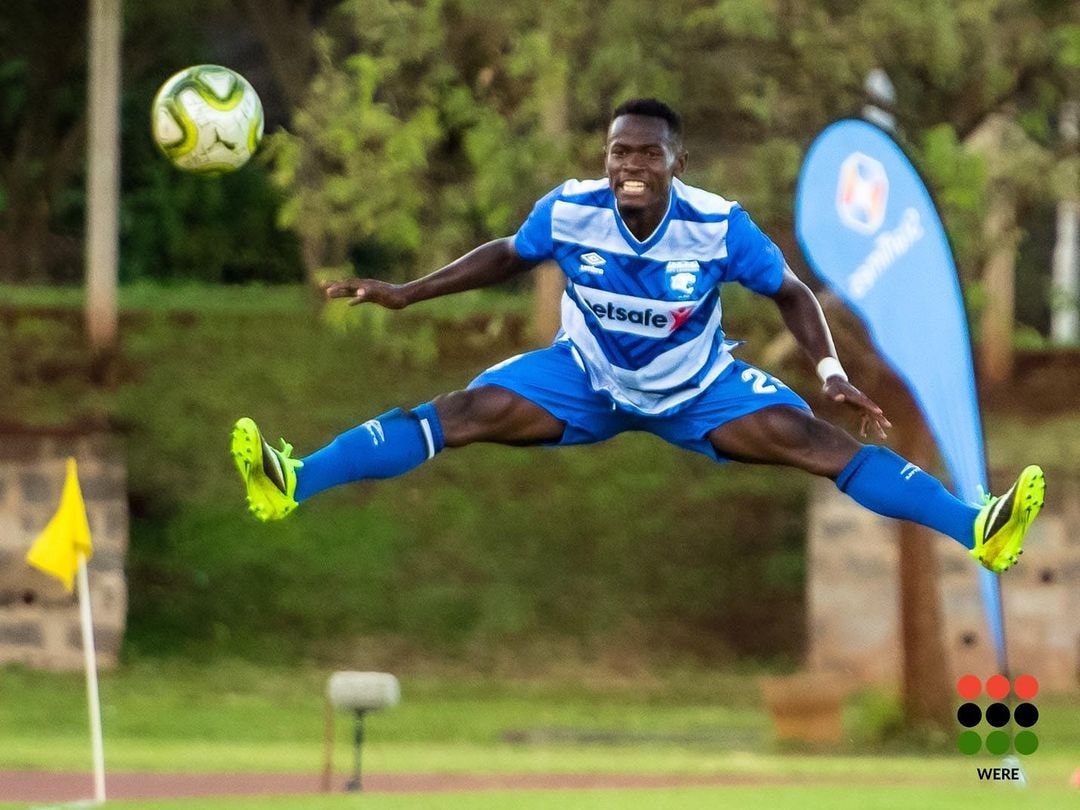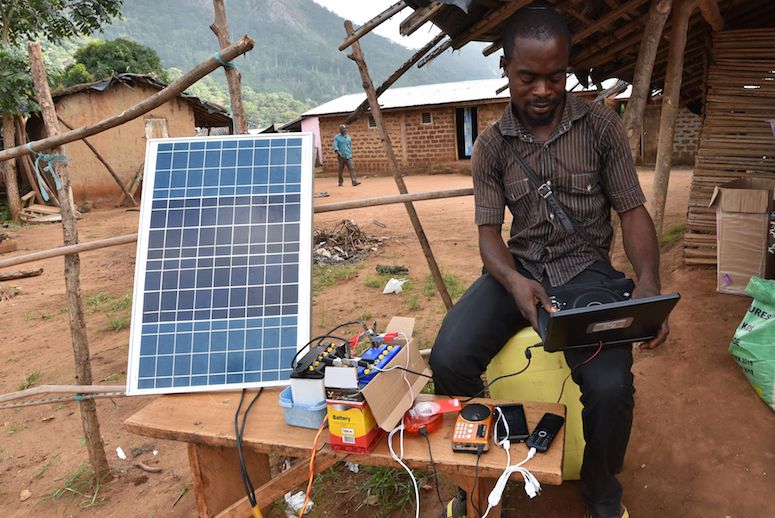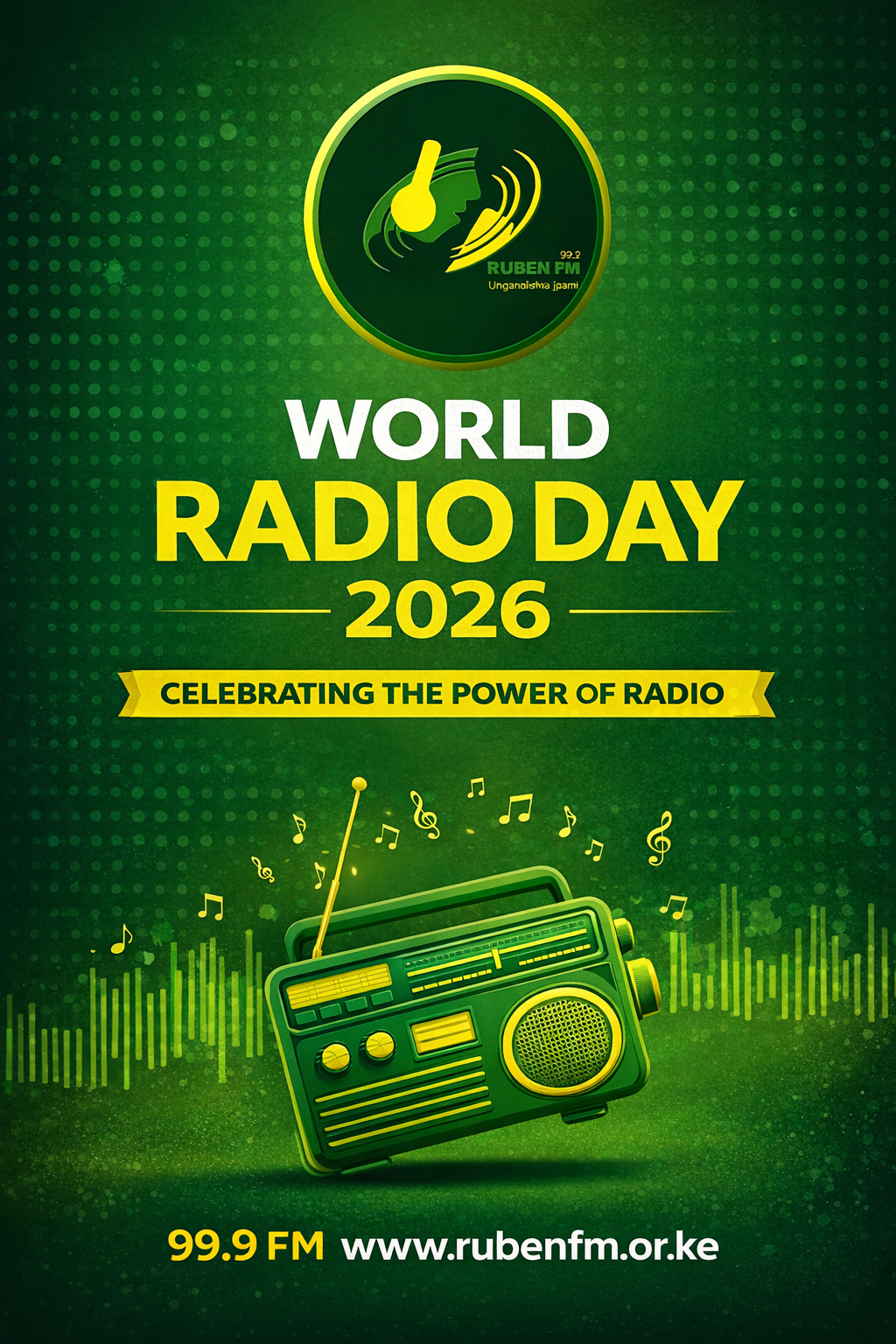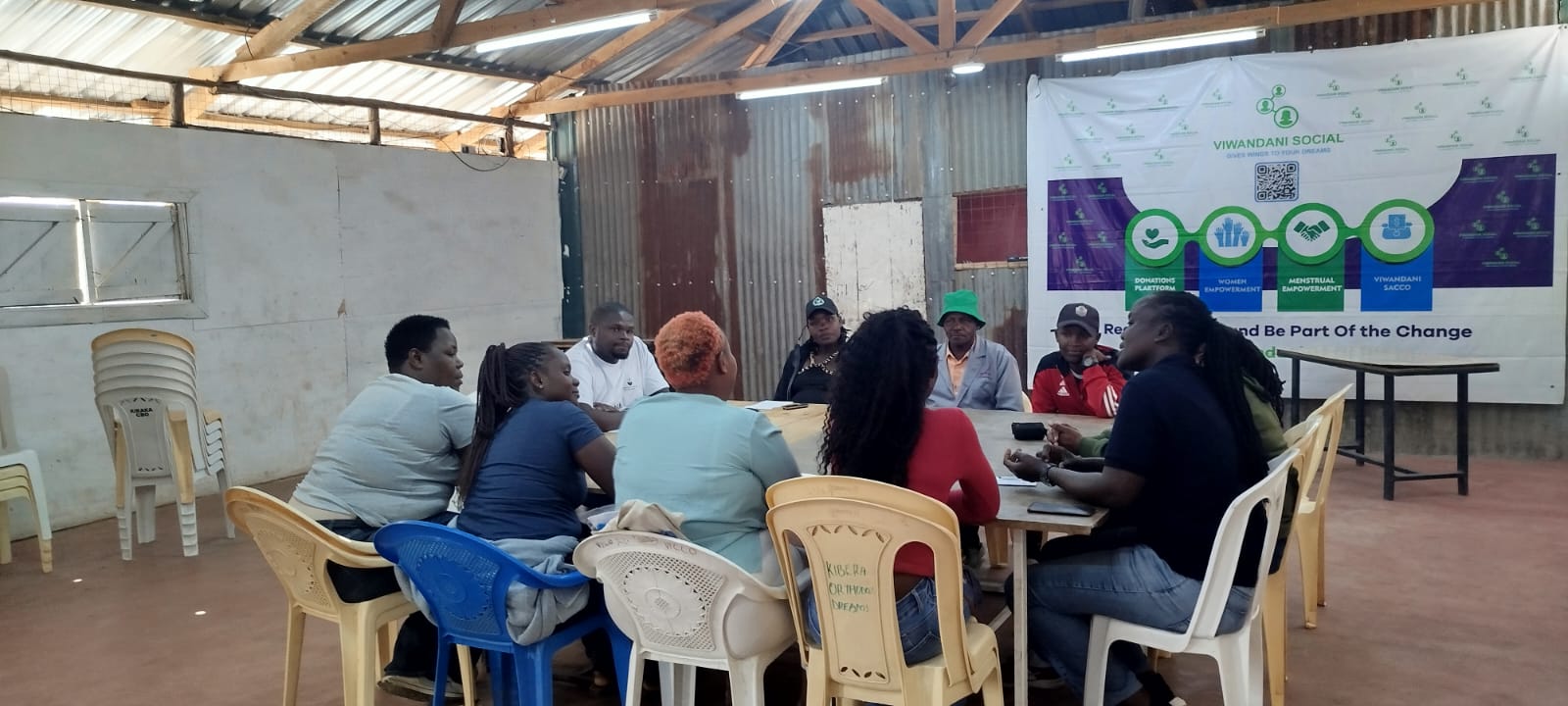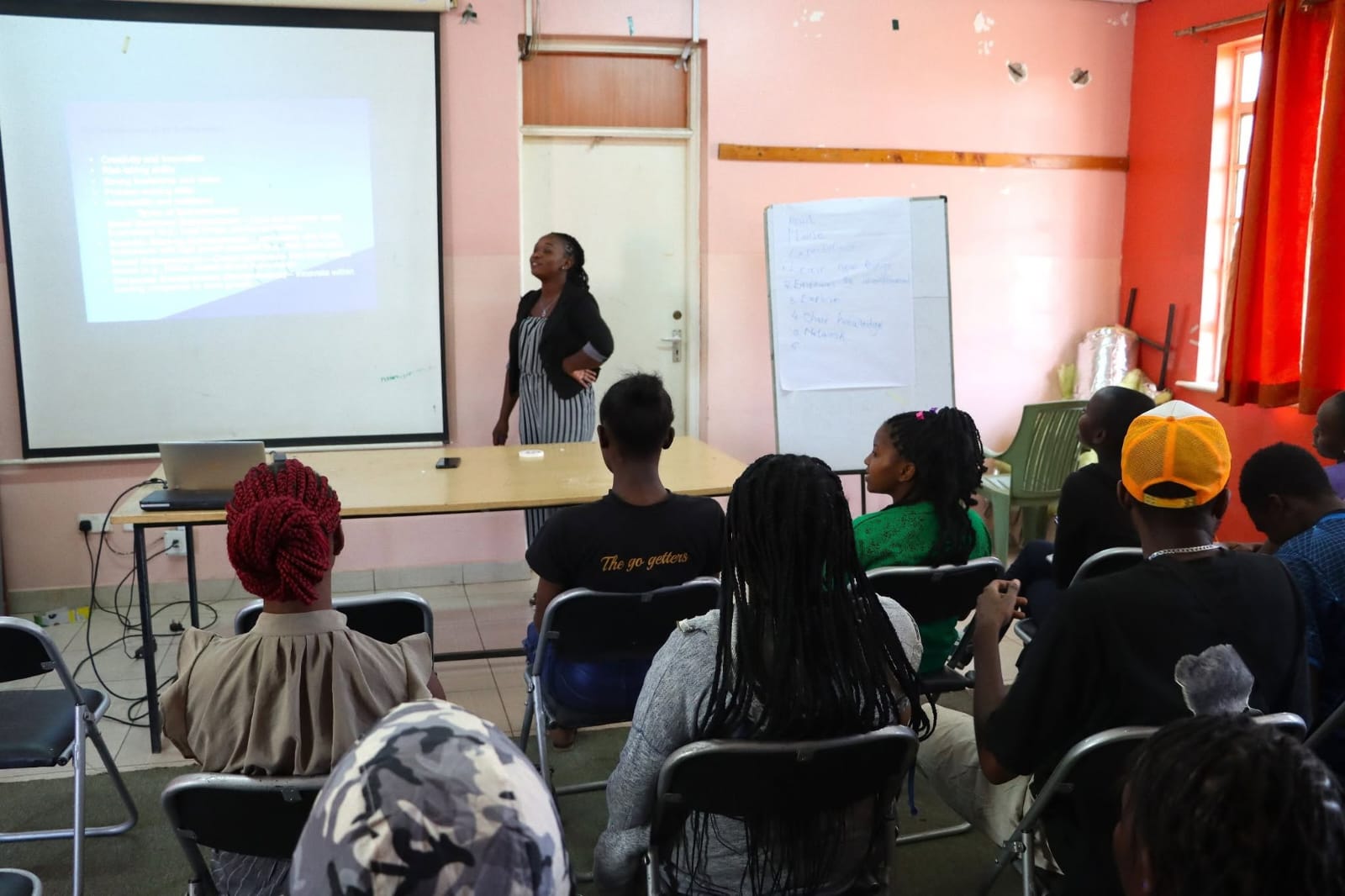FALSE: Photo does not show the drought situation in Embolioi, Kajiado County, in October 2022
Venue: Ruben Centre, Oasis of Hope Hall
Date: 27/09/2025
Duration: 3 hours (initially planned for 2 hours)
Convener: Ruben FM with funding from ERFA
- Attendance
The forum attracted a higher number of participants than anticipated, surpassing the invited list.
Male: 9
Female:13
Total:22
Age: 20-65years
Organizations represented:
- Centre for Rights Education and Awareness (CREAW-Kenya)
- Nairobi County Council (NCC)
- Browns PLG
- Africa Youth Trust (AYT)
- Shining Hope for Communities (SHOFCO)
- Wangu Kanja Foundation
- Journalists for Human Rights (JHR)
- Mama Lucy Hospital
- COSAMA
In addition, several community members attended, including Community Health Practitioners (CHPs).
Absent:
Mukuru Police Station – Invite was sent but the officer in charge of Gender Desk could not attend for she had worked 24-hr shift and her colleague was on leave. As such, no representative was present.
- Proceedings and Key Issues Discussed
2.1 Challenges with Police and Access to Justice
-Community members raised concerns about victimization of survivors by Ruben Police Station.
-Some Nyumba Kumi leaders were accused of enabling perpetrators to escape.
-Survivors reportedly pay KSh 200 for cyber services and KSh 500–1,000 for SGBV-related forms (e.g., P3 forms).
-NCC clarified that obtaining an OB (Occurrence Book) number is free of charge.
-Limited knowledge among police officers on handling and recording SGBV cases due to frequent transfers.
-Lack of clear data on SGBV cases at Mukuru Police Station.
2.2 Evidence Handling
-Survivors and families often compromise cases at the family level before they reach authorities.
-Need for civic education on how to preserve evidence after rape or defilement.
-Technology challenges were noted in preserving forensic evidence.
2.3 Court and Legal Challenges
AYT highlighted that community members often do not understand court language.
Community was informed that a dropped SGBV case can be revived if proper evidence is presented.
2.4 Health Services
- Mama Lucy Hospital representatives emphasized that all SGBV services are free at the facility.
- LGBTQ survivors face unique challenges:
- Health facilities are not accommodative.
- Sodomy cases were highlighted as urgent but often sidelined.
- Femicide was flagged as a rising issue in the community.
2.5 Organizational Interventions and Gaps
CREAW-Kenya:
Advised organizations to collectively advocate for free access to SGBV forms.
Shared about the Jasiri program (empowerment for women and girls aged 17–35). However, it was noted that some individuals exploit the program by “playing victim.”
Wangu Kanja Foundation, Browns PLG, COSAMA & AYT:
Encouraged the community to build positive relationships with the police despite challenges.
JHR:
Urged organizations to participate in radio talk shows to create awareness.
Challenged community members to support police with basics (e.g., providing printing papers) while also demanding accountability to curb corruption.
Reminded media of its critical role in holding leaders accountable and reflecting community realities.
2.6 Community Concerns and Suggestions
Empowerment needed for children, teen mothers, and young boys through counseling and awareness.
Advocacy for establishing a special SGBV unit within the judiciary, similar to the anti-theft unit.
Importance of addressing policy implementation and budget allocation for SGBV response.
- What Worked Well and Why
High turnout: Attendance exceeded expectations, demonstrating strong community interest and the relevance of the topic.
Open dialogue: Participants freely raised sensitive concerns, showing trust in the forum.
Diverse representation: Involvement of multiple organizations, CHPs, and community members enriched the discussions with varied perspectives.
Practical solutions shared: Organizations and community members exchanged actionable advice (e.g., evidence preservation, media collaboration).
- What Did Not Work Well and Why
Absence of the police: Mukuru Police Station did not send a representative, leaving key accountability questions unanswered.
Time management: The meeting exceeded the scheduled 2 hours, stretching to 3 hours due to the gravity and breadth of issues raised.
Gaps in survivor support services: Limited knowledge among police and systemic corruption (illegal charges) hinder effective SGBV response.
Hostility towards LGBTQ survivors: Lack of inclusivity in health facilities was raised as a gap in service delivery.
- Recommendations
Police engagement: Follow up with Mukuru Police Station and NPS to ensure future participation and accountability.
Advocacy on charges: Draft and submit a joint memo to NPS demanding abolition of illegal fees on P3 and related forms.
Community civic education: Conduct targeted awareness sessions on evidence preservation, legal processes, and survivor rights.
Capacity building for police: Advocate for specialized training for officers on SGBV case handling, with provisions to mitigate frequent transfers.
Strengthen health inclusivity: Push for health facilities to provide sensitive and non-discriminatory services to LGBTQ survivors.
Youth engagement: Establish empowerment and counseling programs for young boys, teen mothers, and children as part of prevention strategies.
Media collaboration: Strengthen partnerships with radio and community media to raise awareness and hold duty bearers accountable.
Judiciary engagement: Advocate for creation of a dedicated SGBV unit within the courts for faster, specialized handling of cases.
Policy and budget advocacy: Encourage stakeholders to push for stronger policy implementation and increased budget allocation for SGBV interventions.
- Conclusion
The SGBV stakeholders’ meeting at Ruben Centre provided a vital platform for dialogue, exposure of systemic challenges, and the generation of collaborative solutions. While the absence of the police was a major gap, the active participation of organizations and community members demonstrated the urgency and commitment to addressing SGBV in Mukuru Kwa Ruben.
The forum reinforced the importance of partnerships, accountability, civic education, and inclusivity in ensuring survivors receive justice and holistic support.
Need for such forums moving forward, with more stakeholders brought on board, and the community involvement as it was evident that most people are ignorant about SGBV, forms, reporting process. Mental wellbeing of those handling SGBV cases within the community and those who highlight the cases in media need to be looked into, given the nature of cases they interact with every other day.
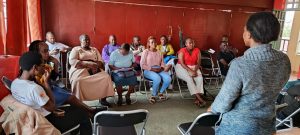
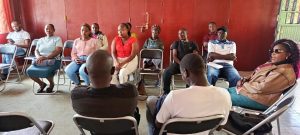
Activity organized and conducted by Mercy Alomba
Report by Mercy Alomba.
